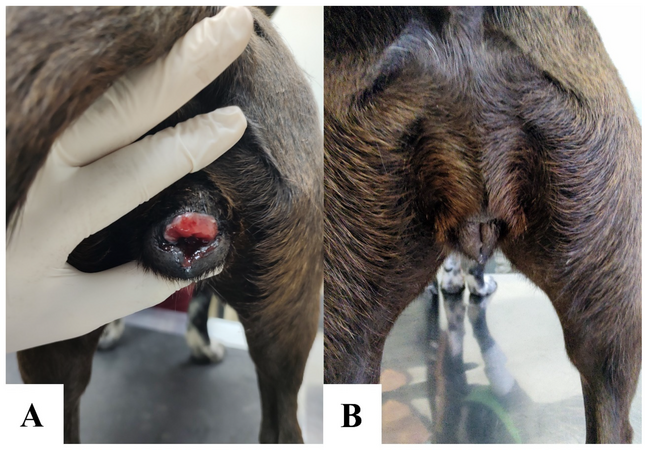Canine Transmissible Venereal Tumor (TVT) 2025 Vet Guide: Diagnosis, Treatment & Prevention 🐶🎀

In this article
Canine Transmissible Venereal Tumor (TVT) 2025 Vet Guide: Diagnosis, Treatment & Prevention 🐶🎀
By Dr. Duncan Houston BVSc
Greetings, caring pet families! I’m Dr Duncan Houston BVSc. Today in 2025, we're shining a light on transmissible venereal tumor (TVT) in dogs—a rare yet important contagious cancer. This guide walks you through its background, symptoms, diagnostic steps, treatment paths, prevention strategies, and the invaluable support Ask A Vet, provide along the way 💪.
1. What Is TVT?
TVT is one of only three known transmissible cancers (alongside Tasmanian Devil Facial Tumour Disease and contagious reticulum cell sarcoma in hamsters). Instead of arising from the host’s own cells, TVT tumors consist of living cancer cells passed directly from one dog to another—often during mating, but potentially through licking, sniffing, or biting of exposed lesions.
Genetic analysis shows that current TVT cells stem from a single cell-lineage originating as early as 6,000–11,000 years ago.
2. Where & How Often Is It Seen?
TVT is globally distributed but markedly more common in tropical and subtropical regions—Central/South America, parts of Asia, Africa—where free-roaming, intact dogs congregate.
In the US and Canada, the tumor is rare; stray, young, sexually active dogs are at the highest risk.
3. Who Is Most Affected?
- Any breed, age, or sex can develop the tumor.
- Intact (not spayed/neutered), sexually active dogs are most frequently affected.
- Spread can also occur via social contact, including grooming or sniffing
4. What It Looks & Feels Like
TVT typically presents as:
- Genital masses: cauliflower-like, pinkish-gray or gray, friable, bleeds easily.
- Oral or nasal TVT: lump on lip, gums or nose—possible bleeding, drooling, bad breath.
- Skin nodules: may ulcerate, with nearby lymph node swelling.
- Breeding issues: discharge, difficulty urinating, or reproductive decline.
5. Diagnosing TVT 🔍
Veterinarians start with clinical history and physical exam:
- Cytology: Impression smear or fine-needle aspiration reveals round, histiocyte-like tumor cells.
- Histopathology: If needed, biopsy with immunohistochemistry confirms diagnosis.
- PCR-based assays: Detect lineage-specific LINE-1 insertion—confirm clonality.
- Imaging: Chest X-ray/abdominal ultrasound if metastasis or systemic spread is suspected.
6. Treatment Options in 2025 💊
a) Chemotherapy (First-Line)
The treatment of choice is vincristine sulfate (0.025 mg/kg IV weekly), typically given for 2 weeks after the tumor has resolved—usually within 4–6 total treatments. Response rate exceeds 90%.
Alternative agents like vinblastine or doxorubicin are used in resistant cases.
b) Surgery
Surgical excision is feasible for small, accessible masses (<2 cm), but recurrence risk is higher; best combined with chemo.
c) Radiation Therapy
Effective in specialized clinics; a single session may suffice for certain tumors.
d) Spontaneous Regression
Rare cases may regress within 3 months, but intervention is typically recommended—after 9 months without regression, recovery is unlikely.
7. Prognosis & Follow-Up
- Overall prognosis: Excellent with appropriate treatment.
- Metastasis is rare (<5%), occurs mostly in young or immunocompromised dogs.
- Relapse: Possible, especially if initial treatment was incomplete; repeat chemo is effective.
- After care: Re-exam and cytology post-treatment; advanced diagnostics if relapse suspected.
8. Prevention & Protection 🛡️
- Limit unsupervised mating and interactions with stray dogs.
- Spay/neuter dogs to reduce roaming and exposure risk.
- Prompt vet check for any unusual growth on genitalia, nose, or mouth.
9. Ask A Vet💡
- Ask A Vet: Real-time guidance during treatment cycle, side-effect monitoring, and support scheduling follow-ups.
10. Emotional & Community Support ❤️
Facing a contagious cancer diagnosis can feel isolating. Ask A Vet offers emotional counseling. Online and local support groups connect families walking a similar path. offer resources to ease daily care. You and your pup are not alone—this journey can bring hope and resilience.
11. Final Thoughts
Transmissible venereal tumor (TVT) is a unique, contagious cancer—but one that is often highly treatable. With diagnostic clarity and vincristine-based chemotherapy, most dogs are cured and return to healthy life. Prevention through responsible breeding care helps limit spread. And with Ask A Vet, by your side, you're equipped with knowledge, support, and hope ❤️🐾.
— Dr Duncan Houston BVSc
For ongoing veterinary support, visit AskAVet.com and download the Ask A Vet app today!






